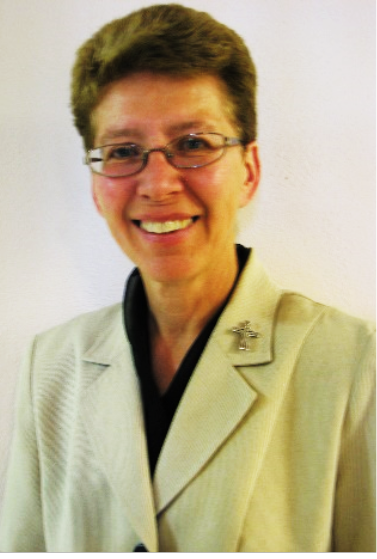- By Sr. Mary Valerie Schneider
To some today, especially youth, many things have a one-year shelf life. Some need a new phone every year, for example, and the weekly “Business” section of the newspaper touts new brands and styles that suggest any former model is obsolete. Clothes hang idly in closets for fear someone saw
- By Sr. Mary Valerie Schneider
Recently four Sisters of Notre Dame from Germany visited our Sisters in the Toledo area. On their last evening before traveling on to the Cleveland area the sisters had dinner at one of the Sisters’ homes. The pork loin meal ended with raspberry pie. Although some of the German sisters
- By Sr. Mary Valerie Schneider
August is here, time of ripeness, time of fullness, time of fulfillment. Plump red orbs on tomato vines. Bushels of zucchini. (“Please take some off my hands.”) Buttered sweet corn crackling under eager bites. Watermelon juice sticky on face and fingers. (“Anyone for a seed-spitting contest?”) Ripening peaches. Fresh cherries.
- By Sr. Mary Valerie Schneider
The morning after a nighttime rain each leaf of a pin oak tree held a teardrop at its tip. The tree had become a chandelier of droplets. Often we think of rain in negative terms, such as “It’s raining on our picnic.” But there can be beauty after the rain.
- By Sr. Mary Valerie Schneider
During my annual retreat I started each day by taking a cup of coffee with me to the edge of a lake where I would sit for a while in reflective silence. One morning without any previous thought I lifted my cup and said “Cheers!” to God. Simultaneously I sensed
- By Sr. Mary Valerie Schneider
Just six months until Christmas Eve! Have you started your shopping? Today’s feast on the Church calendar is a solemnity—the Solemnity of the Nativity of Saint John the Baptist. John was the precursor of Jesus, the Messiah, so today looks toward the birth of Jesus. Today’s feast and Christmas were
- By Sr. Mary Valerie Schneider
In 1969 the three branches of the Sisters of Notre Dame celebrated the canonization of Julie Billiart. Some attended the ceremony in Rome, while the majority had celebrations at home. Our Toledo province gave a concert that day, singing the biography of Julie and the history of Notre Dame. Even
- By Sr. Mary Valerie Schneider
The window in the Lial Renewal Center chapel allows the worshipers to see the outdoors though not distinctly. Much of the window is a large yellow circle that seems to embrace the outdoors, signaling “Come in! Come in!” And at the very center of the yellow circle is the tabernacle,
- By Sr. Mary Valerie Schneider
Today is the feast of St. Aloysius Gonzaga, the patron of youth. On this day we also remember the foundress of the Sisters of Notre Dame, Sister Maria Aloysia Wolbring, who took Saint Aloysius as her patron. His patronage was a good choice, because Sister Maria Aloysia spent her religious
- By Sr. Mary Valerie Schneider
In early morning the row of trees along the lake stood in their habitual greenery. Unexpectedly the sun shone a spotlight on a small section of trees, illuminating the foliage in bright splendor. As the sun rose higher in the sky – my apologies to all you scientists who know





